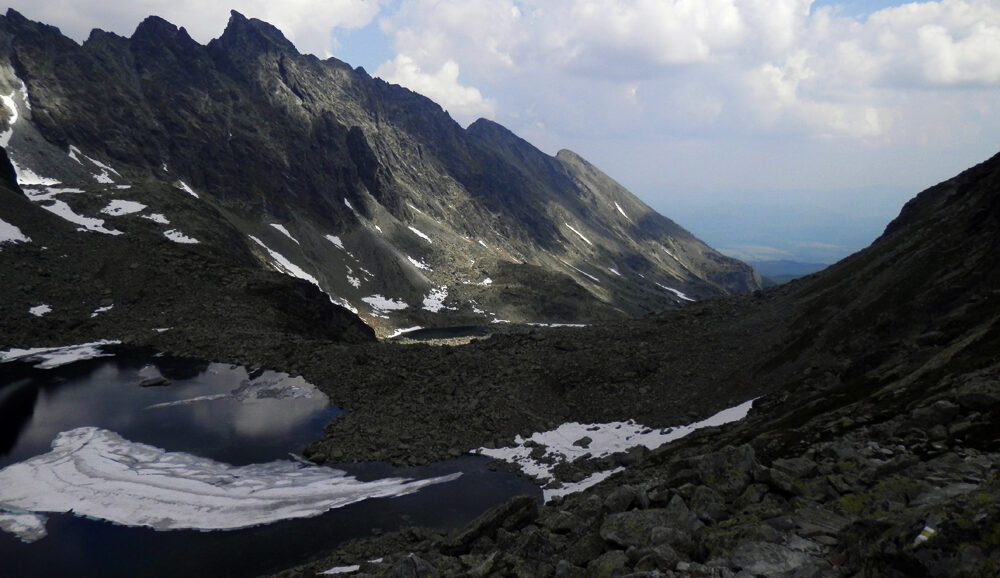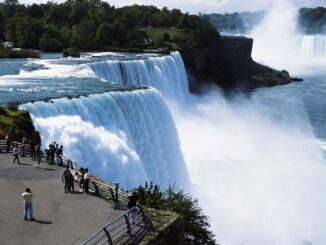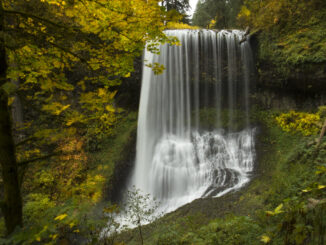
Microplastics can be found literally everywhere, including in the highest lakes far removed from major urban centers and industrial zones.
That’s the conclusion to draw from new research out of a national park in Poland. The study confirms that microplastic pollution is being carried throughout the atmosphere by wind and deposited in even the most remote corners of the globe.
The study’s authors also find that outdoor enthusiasts could be contributing a fair bit to the problem, as well. Their research found plastic microfibers in high alpine lakes that likely came off the winter gear worn by hikers.
A significant source of microplastics in high alpine lakes “is the local anthropogenic impact caused by human activities such as tourism in a specific area,” wrote Kieltyk et al. in the team’s new journal report. “It is then possible to observe a correlation between the level of MP pollution and the distance from field stations, high-elevation shelters, or trails.
The study, spearheaded by Cardinal Stefan Wyszynski University in Warsaw, is now published in the journal Resources.
The research was carried out in Tatra National Park, a scenic mountain ecosystem on Poland’s border with Slovakia. Images from the park are reminiscent of Banff National Park in Canada. Slovakia also manages its own Tatra National Park on its side of the border.
In the study, the research team collected water samples from 11 lakes in the park. The lakes varied in visitor traffic—some are heavily visited, while lakes found in the more isolated corners of the park only see a handful of visitors a day.
Microplastic contamination was discovered in every lake. The volume of samples ranged from 25 to 179 pieces of confirmed microplastics. Plastic fibers were the most common form of contamination discovered.
The study reinforces earlier findings that a significant volume of microplastic waste is carried by the wind high into the atmosphere, to be later deposited in even the remotest mountain areas by rain and snow. The thinking today is that no environment on Earth is completely free of microplastics.
In addition, the researchers say hikers are also contributing to the problem.
“The more popular trails compared to extreme ones are characterized by a higher concentration of [microplastics] and different types of polymers,” they wrote. Prior studies from the Arctic and Himalayas reached similar conclusions.
12 sampling sites were identified from the 11 alpine Polish lakes. A total of 120 water samples, ten from each site, were taken. The researchers said they took pains to ensure that their own clothing didn’t contribute any microplastic waste of their own, potentially contaminating the samples.
Fibers constituted 94% of the confirmed microplastic samples taken. Most of the microplastic fibers found were black in color. 22% of the pieces were red. A wide variety of colored plastic fibers were discovered.
Strong evidence for deposition from the atmosphere came from how well the number of pieces correlated with the size of the lake, and not whether the lake was far removed from popular areas or heavy foot traffic.
“The number of fibers in the lakes was positively correlated with the size of the lake and lake catchment area,” they wrote.
The most important finding, they argue, is the confirmation of how widespread the microplastic pollution problem is.
If microplastic waste can be found in every lake at every latitude in a relatively unknown national park in Poland, then it can be said with confidence that microplastics will be found pretty much anywhere.
As a next step, they propose investigations into whether or not microplastic waste is causing serious chemical and biological harm to these remote high-altitude ecosystems.
“Fish and tadpoles from Alpine lakes appear to be contaminated by [microplastics],” they wrote, “however, studies on the ecological and biological risks posed by MPs in remote mountain regions are still scarce.”
©2025 Public Parks



